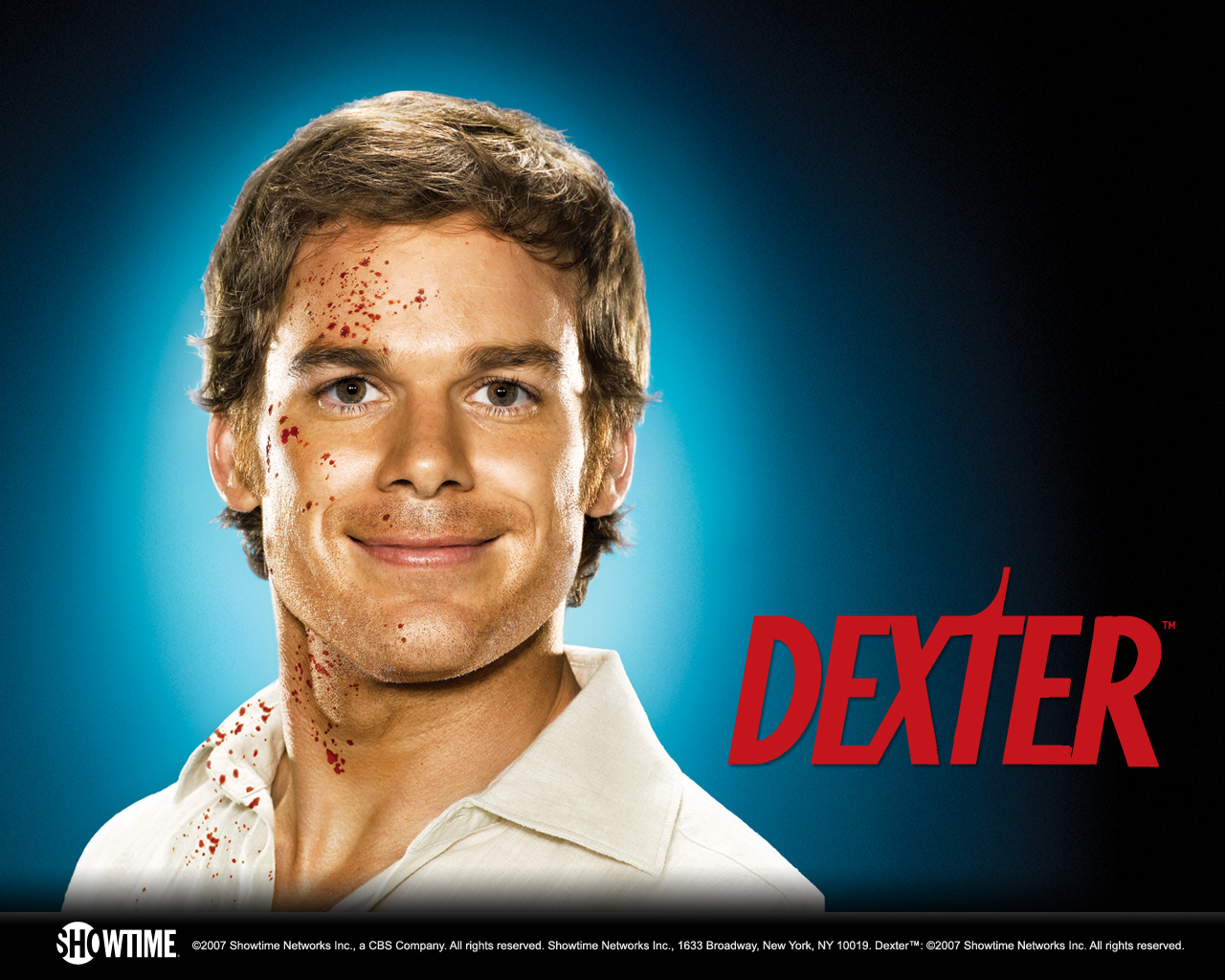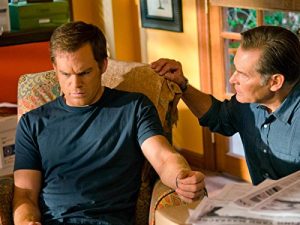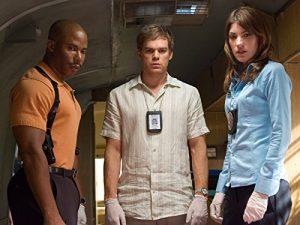“Dexter (2006)”

Dexter (2006-2013) – Detailed Review
Genre: Crime, Thriller, Drama
Creator: James Manos Jr.
Main Cast: Michael C. Hall (Dexter Morgan), Jennifer Carpenter (Debra Morgan), David Zayas (Angel Batista)
Synopsis:
Dexter centers on Dexter Morgan, a Miami Metro blood-spatter analyst who moonlights as a vigilante serial killer. Trained from a young age by his adoptive father to channel his violent tendencies towards killing only those who “deserve” it, Dexter lives by a strict moral code that allows him to indulge his dark side while minimizing harm to innocents. As he navigates the challenges of his double life—working in law enforcement by day and hunting criminals by night—Dexter constantly balances his insatiable urge to kill with his carefully curated façade of normalcy.
Storytelling & Themes:
The show is renowned for its unique take on morality and justice, posing the question of whether an inherently “bad” person can still do good. Dexter’s “Code” sets the rules for his actions, targeting only those who evade the justice system, such as murderers and rapists. Throughout the series, Dexter’s internal monologues reveal a character who struggles with isolation, guilt, and the desire to connect with others, even as he tries to keep his secrets hidden. The series also explores the thin line between law and vigilantism, posing complex ethical questions about right and wrong.
Performance:
Michael C. Hall delivers a standout performance as Dexter, masterfully capturing the character’s duality—a charming, quirky guy on the outside and a dark, calculating vigilante on the inside. Hall’s portrayal of Dexter’s internal conflicts and moral complexities makes him both terrifying and empathetic, turning a serial killer into a surprisingly relatable anti-hero. Jennifer Carpenter as Debra Morgan, Dexter’s sister and a dedicated detective, adds a fierce dynamic to the series with her spirited performance. Carpenter’s chemistry with Hall and her emotional depth provide a critical anchor as Debra unknowingly assists Dexter in his double life.
Direction & Cinematography:
The direction and cinematography of Dexter create an unsettling yet compelling atmosphere. Miami’s vibrant, sun-soaked scenery contrasts starkly with Dexter’s dark activities, emphasizing the duality of his life. The camera often closes in on Dexter’s expressions, subtly conveying his internal struggles without heavy dialogue. Moments of tension are elevated through clever framing and pacing, particularly during scenes where Dexter is stalking or “preparing” his victims, making the viewer feel both apprehensive and captivated.
Soundtrack & Score:
The show’s opening theme, featuring the mundane routine of Dexter’s morning set to a light, almost whimsical tune, perfectly captures his paradoxical existence—an ordinary man with a hidden dark side. The soundtrack, with its blend of eerie and upbeat tracks, helps to create a sense of normalcy that is frequently interrupted by tense, darker moments. Background scores build suspense in critical scenes, adding an extra layer to Dexter’s secretive world.
Character Development:
As the series progresses, Dexter’s relationships grow increasingly complicated, especially as he tries to understand what it means to be “normal” and feel genuine emotions. His relationship with Rita, a single mother and love interest, challenges his detachment, while his bond with his sister Debra brings out his protective, albeit conflicted, side. Each season introduces new adversaries and moral dilemmas, from rival killers to law enforcement pressures, that test Dexter’s code and force him to confront his identity.
Cultural Impact:
Dexter became a cultural phenomenon, sparking conversations about morality, psychology, and justice. It introduced a new kind of anti-hero to television, one who resonates with viewers because of his complexity and relatability despite his dark nature. Dexter’s character paved the way for other morally gray protagonists and set a new standard for storytelling in the crime-thriller genre.
Conclusion:
Dexter remains one of the most innovative crime dramas, blending dark humor, suspense, and psychological complexity. It challenges viewers to consider the blurred boundaries of morality and law, keeping audiences invested in Dexter’s struggle to reconcile his humanity with his homicidal tendencies. Michael C. Hall’s portrayal and the series’ complex themes make Dexter a timeless and unforgettable exploration of the human psyche.
Suggested Video for You:
Dive into an analysis of Dexter’s evolution as a character and how the show redefined anti-heroes in TV history. Discover why Dexter remains a benchmark for character-driven storytelling in the thriller genre.











